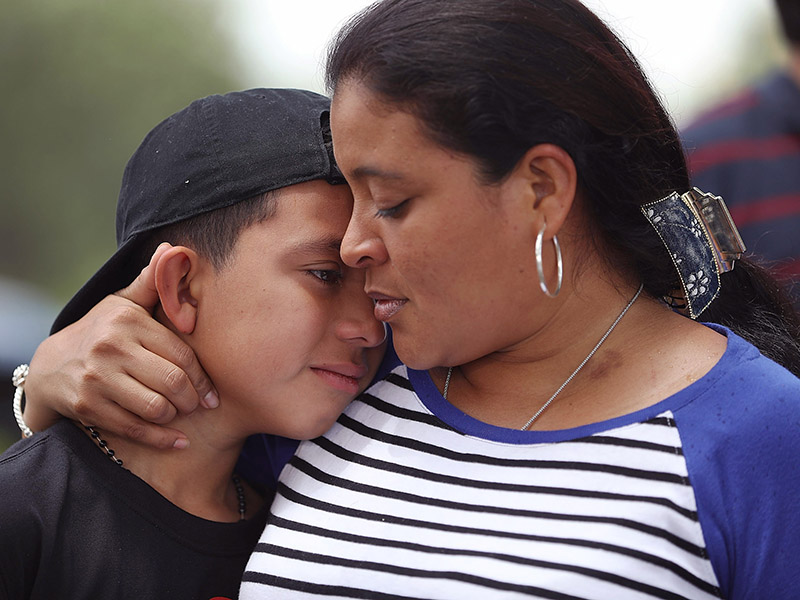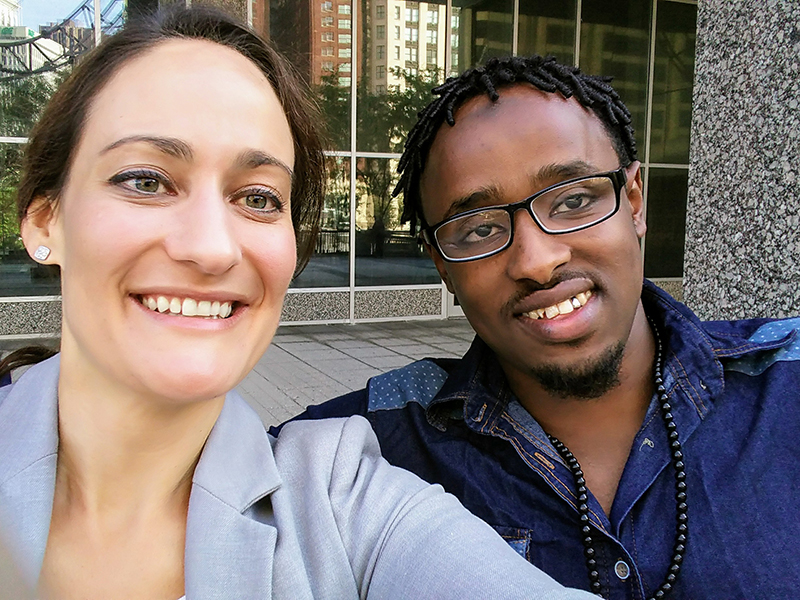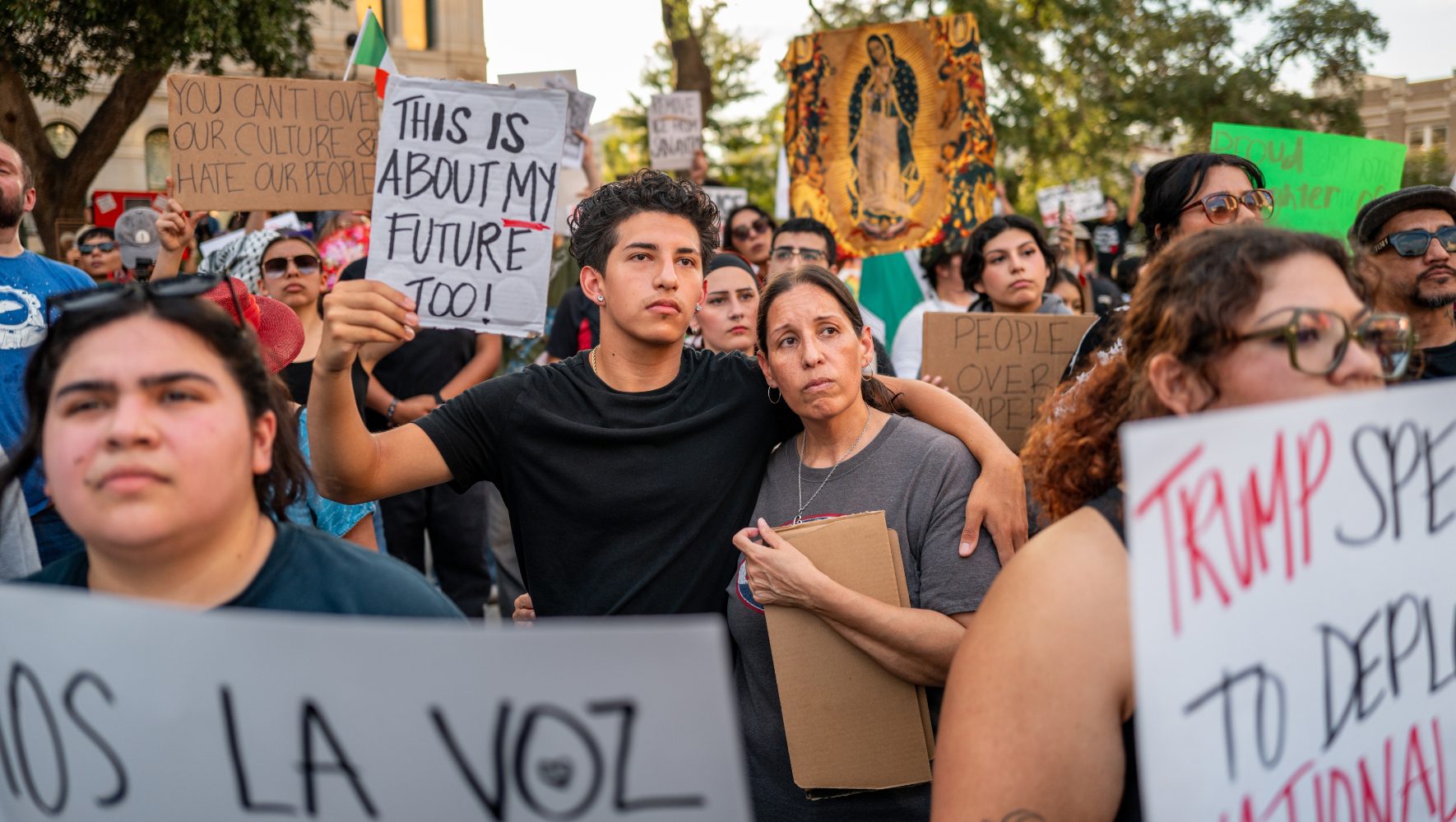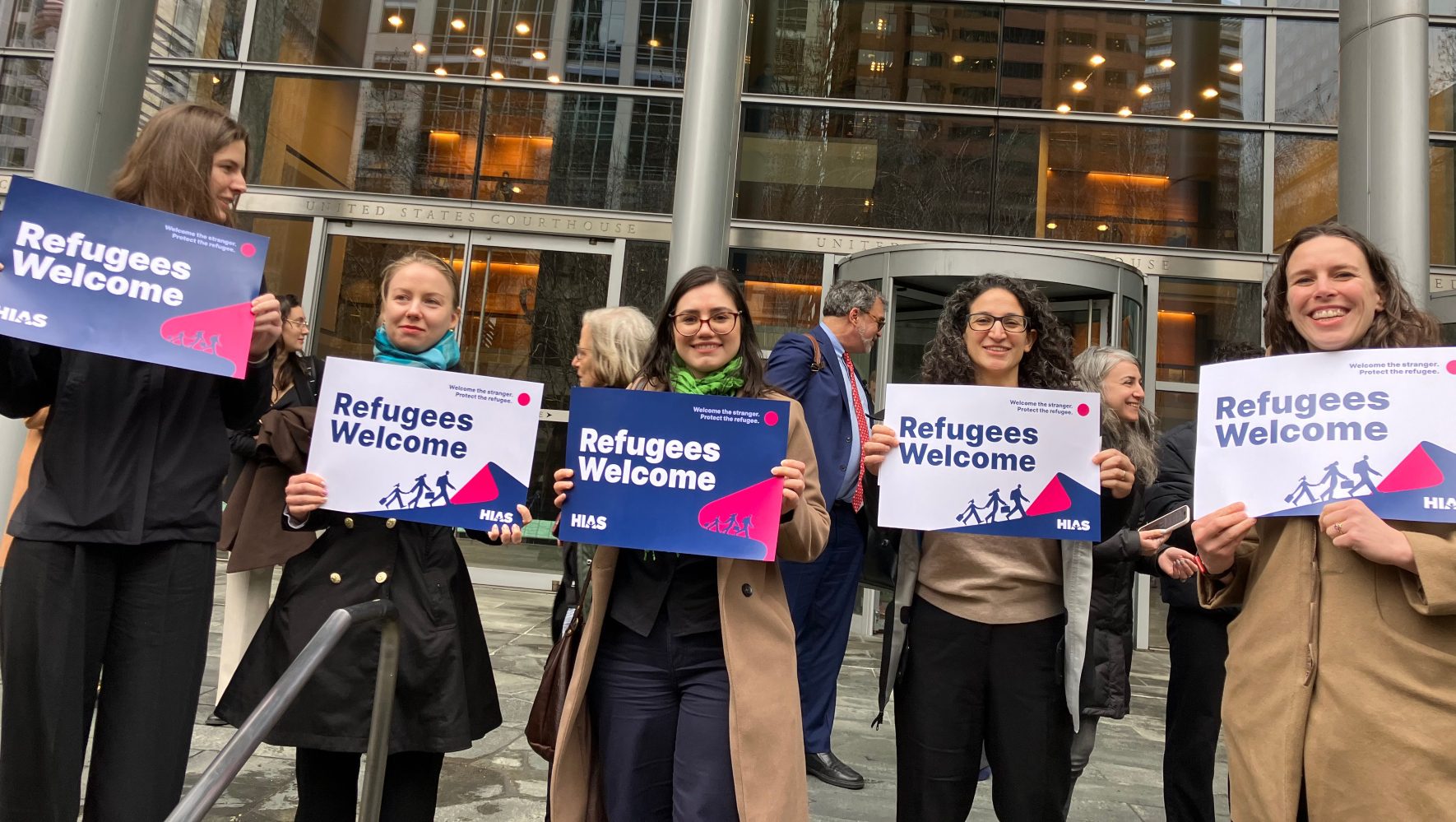Understanding the Trump Administration’s Crackdown on Asylum
By Gabe Cahn, HIAS.org
Mar 21, 2018
In an October 2017 speech, Attorney General Jeff Sessions declared that United States asylum policy has become “an easy ticket to illegal entry into the United States,” and warned that “our generous system is being terribly abused.”
Under the Trump Administration, this rhetoric has been matched by coordinated efforts intended to make it even more difficult than it already is for asylum seekers to gain protection in the United States, and to deter others from seeking protection.
Far from an “easy ticket” to the U.S., America’s asylum system—created to offer a legal route to safety for individuals fleeing persecution—is now defined by prolonged detention, callous separations of parents from their children, and a lack of due process.
While family detention itself is unfortunately not a new practice, in recent months, the implementation of the policy has taken a draconian turn. News reports tell of immigration officials detaining a Congolese asylum seeker separately from her seven-year-old daughter for more than four months, and keeping a Salvadoran asylum seeker from his one-year-old son for nearly three months before releasing him to his mother.
It’s important to remember that many asylum seekers are refugees. They fled their home countries due to well-founded fears of persecution based on race, religion, nationality, political opinion, and membership in a particular social group. They come from countries where their governments won't protect them.
The key distinction is that asylum seekers begin the legal process of finding safe haven after they have arrived in the United States, whereas refugees who are resettled by the U.S. government arrive with their status already adjudicated.
And, similar to the United States Refugee Admissions Program, which is currently on pace to welcome the fewest refugees in its history, the crackdown on asylum appears to be part of this administration’s wider drawback on humanitarian protections for the most vulnerable among us.
As NPR reports, Attorney General Sessions is using his authority to limit who qualifies for asylum and whether they have an opportunity to even present their need for protection.
Over the past few weeks, Sessions has waded into two important asylum case precedents, including one that issued a key decision requiring asylum cases the right to a hearing before rejecting their claims.
In the other, the attorney general is reportedly looking at how much the threat of being the victim of a crime by private actors can be considered in order to qualify for asylum, which suggests that fear of domestic or some forms of gang violence may no longer support asylum claims, leaving many women and children at risk.
As the administration attempts to muddy the waters by claiming widespread abuse, or “fraud,” advocates fear that the legitimate asylum claims of the unprecedented number of people fleeing corruption, violence, and political instability are going unheard.
A recent report from Human Rights First found that “asylum seekers are subjected to a deeply dehumanizing system that punishes them for seeking protection and threatens to return them to countries where they will face persecution.”
On top of this, most immigrants in removal proceedings do not have access to legal representation, as they are not appointed free legal counsel like in the criminal justice system. In particular, those who are in detention are often unable to access counsel, which has massive implications on the outcome of complex asylum cases.
A November 2017 study by the Vera Institute of Justice found that only 6% of unrepresented individuals nationwide achieve successful outcomes in their immigrant detention hearings. In contrast, individuals with legal representation win 46% of the time.
The immigration courts do face a massive backlog of asylum cases, with more than 300,000 pending cases as of January 21, 2018, but the uptick in asylum claims in recent years that critics are quick to attribute to “abuse,” tracks closely with the explosion of the largest global migration crisis in human history, with more than 65 million people displaced around the world.
According to the UNHCR, nearly three times the number of individuals from El Salvador, Guatemala, and Honduras sought asylum between 2013 and 2017 than in the prior 15 years combined. Additionally, in fiscal years 2014 through 2016, U.S. Customs and Border Patrol encountered over 96,000 unaccompanied minors coming from the same three countries, a 176% increase from the three previous fiscal years.
“There’s a reason people seek shelter in the United States, and it’s not because it’s easy,” says Megan Jordi Brody, HIAS’ managing attorney.
“For decades, America has served as an international beacon of freedom for those who are unable to live safely in their home countries. Retreating from this tradition will have a profound impact for us and for the individuals who are asking for protection.”
But even without any legal changes to who can request asylum, the reality facing asylum seekers in the United States remains stark. As they await hearings, many individuals and families toil in detention with inadequate food and shelter for extended periods of time.
Today, asylum seekers who come to the U.S. can be detained without reason and held on enormous bonds for release. These include HIAS clients who entered at the border and asked for asylum right then and there, having fled persecution in their home countries. Individuals waiting for adjudication of their cases to confirm that they are refugees have legal rights that must be respected.
These detention policies were bolstered in February when the Supreme Court overturned a lower court decision in Jennings v. Rodriguez, which had granted immigrants in prolonged detention the right to a hearing challenging their detention after six months.
“The Trump administration wants to make life so miserable for asylum seekers that they give up and return to their home countries, even at the risk of torture or death,” argues Michael Tan, an attorney with the ACLU’s Immigrants’ Rights Project.
“The administration is wielding indefinite detention as a weapon to deter future asylum seekers, which is both cruel and unconstitutional.”
In an op-ed published in Slate, Eleni Bakst and Laura Gault of Human Rights First, which filed a federal lawsuit earlier this month challenging the Trump Administration’s arbitrary detention policy, explain that “instead of a process of individualized determinations, anti-immigrant animus has seemingly resulted in a near blanket denial policy, violating the rights of thousands of asylum seekers seeking protection at our border.”
Yet, despite the growing number of challenges to winning legal status for asylum seekers, HIAS’ legal team maintains a 99% success rate in immigration court and at the asylum office. With the asylum system in flux, and lives hanging in the balance, HIAS is fighting for a welcoming country that protects refugees and asylum seekers.
In January, Simon Wettenhall, HIAS' Lead Advocate for Asylum Services, helped secure asylum status for Denia Sayda Contreras*, a Honduran mother of three and survivor of domestic violence. She hopes that the frightening memories of the home she fled with her Honduran-born children will continue to fade each day.
And this past fall, Megan Jordi Brody worked to win Yaasir* protection after the Somali asylum seeker had been detained for over a year in Maryland.
After being released from detention, Yaasir joyfully went to live with his brother in Denver, Colorado and is now petitioning to bring his wife and daughter to the U.S.
HIAS’ message to people like Denia and Yassir is echoed by our countless supporters in the American Jewish community and beyond: you are welcome here.
*Names have been changed to protect the privacy of clients.
HIAS attorneys in Silver Spring and New York provide representation to immigrants and forced migrants with humanitarian claims, including asylum seekers at the asylum office and in immigration court, victims of crime, victims of trafficking, victims of domestic violence, and children who have been abused, abandoned, and neglected by their parents. To learn more about HIAS’ work on behalf of asylum seekers, follow us on Facebook, Twitter and Instagram.






